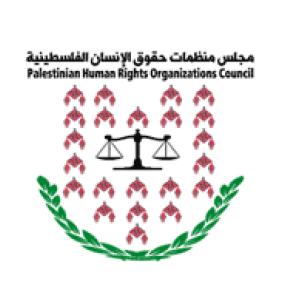
The Palestinian Human Rights Organisations Council (PHROC) views with great concern the press release issued by the Palestinian Police on Saturday, 17 August 2019, preventing any organized activities by alQaws and calling to report anyone associated with the organisation. Severe community reactions have resulted from the statement, infringing on human rights, which are indivisible, and creating a negative societal atmosphere involving incitement to violence leading to threats to the right to life and physical integrity, as inherent rights owed to every human being without discrimination.
The Police statement comes within the context of civil society organisations having observed a marked increase in the rates of violence and crime within Palestinian society. This is the result of several factors, most notably, the systematic violations by the Israeli occupying authorities, a deterioration in economic and living conditions, increased rates of poverty and unemployment, and the general state of frustration, especially amongst Palestinian youth.
In many respects, the statement has violated the provisions of the amended Palestinian Basic Law, relevant Palestinian legislation, and the international treaties to which the State of Palestine has acceded without reservations. In particular, it is in breach of the international human rights framework and its indivisibility, the principles of equality and non-discrimination, and the constitutional and legal functions and responsibilities of the Palestinian Police in enforcing the law and upholding the rule of law. In addition, it undermines the realisation of safety, security, and protection for all citizens, on an equal footing, in full respect of fundamental rights and freedoms. Although the Palestinian Police subsequently withdrew its statement, as a positive step, the serious interactions and backlash that has accompanied the statement’s release pose a serious threat to the Palestinian LGBTQ community and to members of the alQaws community and have included incitement to violence, reaching the level of incitement to killings, which constitute serious violations of fundamental rights and freedoms and the obligations of the State of Palestine.
Accordingly, this requires all relevant official bodies and law enforcement agencies to adopt serious measures based on open, rights-based, and progressive dialogue, encouraging community debate on various human rights issues. At the same time, officials must ensure, at all times, the safety and security of all citizens, without discrimination, uphold the rule of law, and protect fundamental rights and freedoms.
PHROC is gravely concerned that the State of Palestine is breaching its obligations to fulfil the principles of equality and non-discrimination. This includes the implementation of the protections enshrined in the human rights treaties to all persons subject to its jurisdiction without distinction of any kind, such as race, colour, sex, language, religion, political or other opinion, national or social origin, property, birth or other status. Critically, the general human rights obligations of non-discrimination form the very core of basic human rights protection and are binding on all public authorities and branches of Government (executive, legislative and judicial), and at the national, regional, and international levels. As such, the State is bound by the obligation of non-discrimination locally and internationally and must fulfil its duty to protect the rights of all citizens. Accordingly, Palestinian authorities may not engage in any activities that would, in one way or another, create an atmosphere of incitement, hatred, and discrimination of any kind, including discrimination on the basis of sexual orientation and gender identity. They must ensure, at all times, that persons are protected from any attack on this ground, subject to liability and punishment, and that their performance and all their activities abide by the Code of Conduct and Ethics of the Palestinian Police and the United Nations (UN) Code of Conduct for Law Enforcement Officials adopted by the General Assembly in 1979 to uphold and respect fundamental rights.
PHROC deplores the death threats issued by persons following the issuance of the Police statement. In this regard, PHROC recalls the positions by UN human rights experts that States must fulfil their obligation to create an enabling space for the right to freedom of expression for all individuals and to counteract hate speech made by public officials and politicians, not only through administrative measures, but also by encouraging public figures to speak out against hatred and intolerance. In addition, human rights experts have observed that in seeking to reject hate speech and incitement to violence, a key catalyst is the ever-growing presence of social media and its responsiveness to human rights.
In light of the above, PHROC affirms its determination to fulfil its duty to document and to follow-up on any violation in this regard in accordance with the law and international human rights treaties. Accordingly, PHROC calls upon the Palestinian Police and the Public Prosecution to open effective criminal investigations into any discriminatory attack of any kind and to hold those responsible for publishing the statement accountable, for its violation of the provisions of the Basic Law, relevant Palestinian legislation, and international treaties, and to provide guarantees of non-repetition.
PHROC reiterates its call on the official authorities and the Palestinian Civil Police to open up to community-based dialogue, grounded in human rights, and to seek the expansion of such debate to include all components of Palestinian society, and to stimulate serious and progressive civil society discussions on various human rights issues, in a manner that upholds the rights of all, preserves the rule of law, and promotes human rights principles, including the indivisibility of human rights, in respect of the international treaties to which the State of Palestine has acceded and the standards protecting and preserving the international human rights system.
END